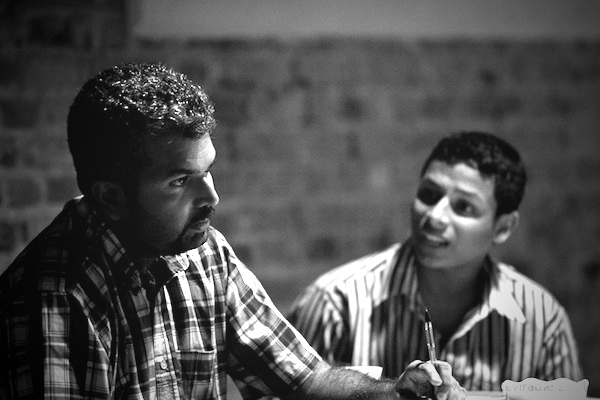Life span of one hour, four people performed excellently at a renovated warehouse down Park Street Mews. I was rooted to my seat and watched and listened in careful concentration to capture every syllable of the dialog. The play is low cost and high quality and gave a poignantly strange message of displaced people that we are gradually and conveniently beginning to forget. It is not only the man, woman and child who got corralled in Menik Camp that lost their ‘home.’ There is a whole lot more who are harnessed and weighed down and up rooted by the racial yoke. These then too are people of the soil, who are now geographically scattered and emotionally disorientated and carry totally or partially valid reasons to feel that they belong to an unequal second race. The count among them is considerable, each looking in his or her moral compass to find a route that could guide him or her to a destination defined as home. Not easy, not easy at all. And it is plays like ‘My Other History’ that make voiceless bystanders like me become aware of the dilemma that goes beyond the politics of the matter.
Any solution sought on the racial issue is racing on foot against horses. It has to be done, but it is a hard grind of long term recovery where the proposed answers come tagged to pull heart string in a total turmoil of emotions. Too many complications still surround us as a result of the war that devastated everyone. Appointed reconciliatory teams are the need of the day but at times they themselves have to be reconciled. A lot of the truth gathers dust, dented, warped and expressionless, and is misplaced and misinterpreted at most times from both sides of the divide. The anonymous casualty count of racial disharmony is almost impossible to be tallied.
Little plays like ‘My Other History’ wake us to re-think. The message was clear, it wasn’t in fancy drapes and opulent neon but in dimly-lit candle-light. It showed the soul of the matter, surrounded by looming shadows that stalked to scare the admittance of the reality in each of us.
He didn’t go; she went with her son to see what was left of where they called home. The two retuned, carrying a small bundle of ‘murunga’ tied with a string and three mangoes, the remains of where they belonged.
I say no more, go see the play.
Late that night in the quietness of home my thoughts drifted as I pondered staring at nothing and wondered what it would be to feel like them?
The answers came in multiple choices, all wrong, all correct, some a bit of both. I didn’t know which to tick.
Spectators like me only watch from the sidelines and think we understand.
I doubt whether we do.
Thank you ‘My Other History” I sincerely salute you.
###
Editors note: ‘My Other History’ is produced by the Floating Space theatre company as part of (Un)making Time; a project to support new theatre-making initiated by the Sunethra Bandaranaike Trust. It is written and directed by Jake Oorloff and performed by Thushara Hettihamu, Ruhanie Perera, Freya D’Almeida and Amaz Irshad.
(Un)making Time brings together two new performances created by the artists – ‘Rondo’ directed by Tracy Holsinger and Arun Welandawe-Prematilleke and ‘My Other History’.
Read a short review of Rondo by Sunila Abeysekara here.
